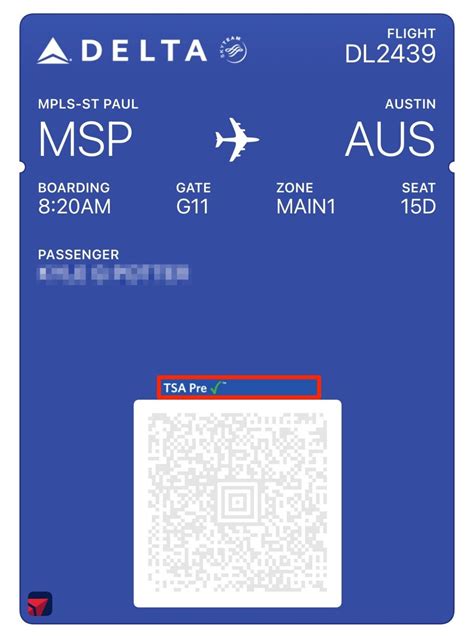
Apple’s forthcoming technology, designed to verify users’ identities using mobile driver’s licenses and state IDs stored on iPhones and Apple Watches, has received a strong endorsement from the Transportation Security Administration (TSA), signaling a potential transformation in airport security and identity verification processes. The TSA anticipates that this technology will streamline the identification process, reduce physical contact between travelers and TSA officers, and enhance overall security efficiency.
Apple’s Mobile ID Technology Poised to Reshape Travel Security, TSA Confirms
The Transportation Security Administration (TSA) has confirmed that Apple’s new technology, which allows users to store their driver’s licenses and state IDs digitally on iPhones and Apple Watches, is poised to revolutionize travel security and identity verification processes. The agency foresees that the integration of this technology will streamline security checks, reduce physical contact between travelers and TSA agents, and enhance the overall efficiency and security of airport screenings. This move aligns with the TSA’s ongoing efforts to modernize security procedures and leverage innovative technologies to improve the passenger experience.
TSA’s Endorsement and Pilot Programs
The TSA has been actively involved in testing and evaluating mobile driver’s licenses (mDLs) for several years. The agency has already conducted pilot programs in various states to assess the feasibility and effectiveness of using mobile IDs for identity verification at airport checkpoints. These pilot programs have provided valuable insights into the practical implementation of mDLs and have helped the TSA refine its procedures for accepting and verifying digital IDs.
“This is a game changer,” said a TSA spokesperson, highlighting the potential impact of Apple’s technology on travel security. The TSA has been working closely with Apple to ensure that the technology meets the agency’s security standards and integrates seamlessly with existing airport infrastructure. The collaboration aims to create a secure and efficient system for verifying travelers’ identities using their mobile devices.
How Apple’s Mobile ID Works
Apple’s mobile ID technology utilizes advanced encryption and security features to protect users’ personal information. When a traveler presents their mobile ID at a TSA checkpoint, the device communicates directly with the TSA’s identity verification system. The system verifies the authenticity of the ID and confirms the traveler’s identity without requiring the traveler to physically hand over their device or share sensitive personal information with the TSA officer.
The system also incorporates fraud prevention measures to detect and prevent the use of counterfeit or altered mobile IDs. Apple has worked closely with state DMVs and security experts to develop a robust system that meets the highest standards for security and privacy.
Benefits of Mobile ID Technology
The TSA anticipates several significant benefits from the widespread adoption of mobile ID technology:
- Improved Efficiency: Mobile IDs can significantly speed up the identity verification process at airport checkpoints. Travelers can quickly and easily present their digital IDs, and TSA officers can verify their identities in a matter of seconds. This can help reduce wait times and improve the overall flow of passengers through security.
- Reduced Physical Contact: By using mobile IDs, travelers can minimize physical contact with TSA officers and airport staff. This is particularly important in the context of ongoing health concerns and the need to reduce the spread of germs and viruses.
- Enhanced Security: Mobile IDs incorporate advanced security features, such as encryption and biometric authentication, which make them more secure than traditional physical IDs. These features can help prevent fraud and identity theft and ensure that only authorized individuals are able to access secure areas of the airport.
- Greater Convenience: Mobile IDs offer travelers a convenient and easy-to-use alternative to physical IDs. Travelers can store their IDs securely on their mobile devices and access them whenever they need them. This eliminates the need to carry around multiple physical IDs and reduces the risk of losing or misplacing them.
- Data Privacy: Apple’s implementation of mobile IDs emphasizes user privacy. The technology is designed to minimize the amount of personal information shared with the TSA and other third parties. Travelers have control over what information they share and can choose to revoke access to their mobile IDs at any time.
Impact on the Travel Industry
The integration of Apple’s mobile ID technology has the potential to transform the travel industry in several ways:
- Streamlined Airport Experience: By speeding up the identity verification process, mobile IDs can help create a more streamlined and efficient airport experience for travelers. This can lead to reduced wait times, less stress, and a more positive overall travel experience.
- Enhanced Security: Mobile IDs can significantly enhance the security of airports and other transportation hubs. The advanced security features incorporated into mobile IDs can help prevent fraud and identity theft and ensure that only authorized individuals are able to access secure areas.
- Reduced Costs: The widespread adoption of mobile IDs can help reduce costs for both travelers and transportation providers. Travelers can save money by not having to replace lost or stolen physical IDs, and transportation providers can save money by streamlining their security procedures and reducing the need for manual identity verification.
- Innovation and Competition: The integration of mobile ID technology can spur innovation and competition in the travel industry. Companies are likely to develop new and innovative applications and services that leverage mobile IDs to improve the traveler experience.
Challenges and Considerations
Despite the potential benefits of mobile ID technology, there are also several challenges and considerations that need to be addressed:
- Accessibility: It is important to ensure that mobile ID technology is accessible to all travelers, including those who do not own smartphones or who have disabilities. Alternative methods of identity verification should be available for those who are unable to use mobile IDs.
- Privacy Concerns: Some travelers may have concerns about the privacy implications of using mobile IDs. It is important to address these concerns and to ensure that the technology is implemented in a way that protects travelers’ privacy.
- Security Risks: Mobile ID technology is not immune to security risks. It is important to implement robust security measures to protect against hacking, fraud, and other threats.
- Interoperability: It is important to ensure that mobile ID technology is interoperable across different states and jurisdictions. This will allow travelers to use their mobile IDs seamlessly when traveling across state lines.
- Infrastructure Investment: The widespread adoption of mobile ID technology will require significant investment in new infrastructure and equipment. Airports and other transportation hubs will need to upgrade their security systems to support mobile ID verification.
Future Developments
The integration of Apple’s mobile ID technology is just one step in the ongoing evolution of travel security. In the future, we can expect to see even more innovative technologies being used to improve the safety and efficiency of air travel. These technologies may include biometric scanning, artificial intelligence, and advanced data analytics.
The TSA is committed to working with industry partners to develop and implement these new technologies in a way that enhances security, improves the passenger experience, and protects travelers’ privacy.
States Supporting Mobile Driver’s Licenses
Several states have already expressed interest in supporting mobile driver’s licenses and are working with Apple and other technology providers to develop and implement mDL programs. These states include Arizona, Colorado, Georgia, Maryland, and Kentucky, among others. As more states adopt mDL technology, it is likely to become more widely accepted at airports and other transportation hubs across the country.
Privacy Protections
Apple emphasizes privacy as a core tenet of its mobile ID implementation. The company asserts that users retain control over their data and are not required to share more information than necessary. The system is designed to minimize data collection and ensure that personal information is only shared with the user’s explicit consent.
Cybersecurity Measures
Given the sensitive nature of identity data, cybersecurity is a paramount concern. Apple incorporates multiple layers of security, including encryption, biometric authentication, and secure element hardware, to protect mobile IDs from unauthorized access and tampering. The system is also designed to detect and prevent fraud, ensuring the integrity of the identity verification process.
User Experience
Apple has focused on creating a user-friendly and intuitive experience for mobile ID holders. The process of adding a driver’s license or state ID to the Apple Wallet is designed to be simple and straightforward. Presenting the mobile ID at a TSA checkpoint is also designed to be quick and easy, minimizing disruption to the travel experience.
Standardization Efforts
Efforts are underway to standardize mobile ID technology across different states and jurisdictions. The American Association of Motor Vehicle Administrators (AAMVA) has developed standards for mDLs that aim to ensure interoperability and consistency across different implementations. These standards are helping to drive the adoption of mDL technology and to ensure that it is implemented in a way that is secure, reliable, and user-friendly.
Legislative and Regulatory Framework
The widespread adoption of mobile ID technology will require a supportive legislative and regulatory framework. States need to enact laws that authorize the use of mDLs and establish the legal basis for their acceptance as valid forms of identification. Federal agencies, such as the TSA, need to develop regulations that govern the use of mDLs at airports and other transportation hubs.
Impact on Other Industries
The impact of mobile ID technology is not limited to the travel industry. Mobile IDs have the potential to be used in a wide range of other applications, such as age verification for purchasing alcohol or tobacco, identity verification for opening bank accounts, and access control for secure buildings.
The widespread adoption of mobile ID technology could transform the way we interact with businesses and government agencies, making it easier and more convenient to verify our identities in a variety of contexts.
Accessibility Considerations
Ensuring accessibility for individuals with disabilities is a crucial aspect of implementing mobile ID technology. Apple has incorporated accessibility features into its mobile ID implementation to make it usable by people with a wide range of disabilities. These features include VoiceOver support, which allows visually impaired users to interact with their devices using spoken commands, and Switch Control, which allows users with limited mobility to control their devices using assistive switches.
Public Awareness and Education
Public awareness and education are essential for the successful adoption of mobile ID technology. Travelers need to be informed about the benefits of mobile IDs and how to use them properly. The TSA and other government agencies need to launch public awareness campaigns to educate travelers about mobile IDs and to encourage them to adopt the technology.
Collaboration and Partnerships
Collaboration and partnerships are key to driving the adoption of mobile ID technology. Apple is working closely with state DMVs, the TSA, and other industry stakeholders to develop and implement mobile ID programs. These partnerships are helping to ensure that mobile ID technology is implemented in a way that is secure, reliable, and user-friendly.
Economic Impact
The widespread adoption of mobile ID technology could have a significant positive impact on the economy. By streamlining identity verification processes, mobile IDs can help reduce costs for businesses and government agencies. They can also help improve the efficiency of travel and commerce, leading to increased economic activity.
Future Trends
The future of mobile ID technology is bright. As technology continues to evolve, we can expect to see even more innovative applications of mobile IDs. These applications may include the use of biometric authentication, such as facial recognition and fingerprint scanning, to further enhance security. They may also include the integration of mobile IDs with other digital identity systems, such as digital wallets and online payment platforms.
International Adoption
While the initial focus of mobile ID technology has been on the United States, there is growing interest in adopting mDLs in other countries as well. Several countries are exploring the possibility of implementing mDL programs to improve the efficiency and security of identity verification processes.
FAQ: Apple’s Mobile ID and TSA’s Revolution in Travel Security
1. What exactly is Apple’s Mobile ID technology, and how does it work?
Apple’s Mobile ID technology allows users to securely store their driver’s licenses and state IDs digitally on their iPhones and Apple Watches. This digital ID can then be used for identity verification purposes, such as at TSA checkpoints. When presenting the Mobile ID, the device communicates directly with the verification system, confirming the user’s identity without requiring the physical exchange of the device or sensitive personal information. The technology utilizes encryption and biometric authentication to ensure security and privacy. The process to add is very straight forward, you can add your driver’s license or state ID to the Apple Wallet. Presenting the mobile ID at a TSA checkpoint is also designed to be quick and easy, minimizing disruption to the travel experience.
2. How does the TSA plan to use Apple’s Mobile ID technology to enhance travel security?
The TSA intends to use Apple’s Mobile ID to streamline the identity verification process at airport security checkpoints. By allowing travelers to present their digital IDs on their iPhones or Apple Watches, the TSA aims to reduce physical contact between travelers and TSA officers, speed up the security screening process, and enhance overall security efficiency. The agency has conducted pilot programs to assess the feasibility and effectiveness of using mobile IDs for identity verification. TSA anticipates several significant benefits from the widespread adoption of mobile ID technology such as Improved Efficiency, Reduced Physical Contact and Enhanced Security.
3. What security measures are in place to protect users’ personal information when using Apple’s Mobile ID?
Apple incorporates multiple layers of security to protect users’ personal information when using Mobile ID. These measures include advanced encryption to safeguard data during transmission and storage, biometric authentication (such as Face ID or Touch ID) to verify the user’s identity, and secure element hardware to protect the Mobile ID from unauthorized access and tampering. Apple also emphasizes user privacy, ensuring that users have control over what information they share and that only necessary data is transmitted during verification. The system is also designed to detect and prevent fraud, ensuring the integrity of the identity verification process.
4. Which states are currently supporting or planning to support Apple’s Mobile ID technology?
Several states have expressed interest in supporting Apple’s Mobile ID technology and are working with Apple and other technology providers to develop and implement mobile driver’s license (mDL) programs. These states include Arizona, Colorado, Georgia, Maryland, and Kentucky, among others. As more states adopt mDL technology, it is likely to become more widely accepted at airports and other transportation hubs across the country. Efforts are underway to standardize mobile ID technology across different states and jurisdictions. The American Association of Motor Vehicle Administrators (AAMVA) has developed standards for mDLs that aim to ensure interoperability and consistency across different implementations.
5. What are the potential challenges and concerns associated with the widespread adoption of Apple’s Mobile ID technology, and how are they being addressed?
Potential challenges and concerns associated with the widespread adoption of Apple’s Mobile ID technology include accessibility for individuals who do not own smartphones or have disabilities, privacy concerns regarding the collection and use of personal data, security risks such as hacking or fraud, interoperability issues across different states and jurisdictions, and the need for infrastructure investment to support mobile ID verification. To address these concerns, Apple and other stakeholders are implementing accessibility features, emphasizing user privacy controls, incorporating robust security measures, working towards standardization, and collaborating with government agencies to develop supportive legislative and regulatory frameworks. It is important to ensure that mobile ID technology is accessible to all travelers, including those who do not own smartphones or who have disabilities. Alternative methods of identity verification should be available for those who are unable to use mobile IDs.
The TSA has been actively involved in testing and evaluating mobile driver’s licenses (mDLs) for several years. The agency has already conducted pilot programs in various states to assess the feasibility and effectiveness of using mobile IDs for identity verification at airport checkpoints. These pilot programs have provided valuable insights into the practical implementation of mDLs and have helped the TSA refine its procedures for accepting and verifying digital IDs. The system also incorporates fraud prevention measures to detect and prevent the use of counterfeit or altered mobile IDs. Apple has worked closely with state DMVs and security experts to develop a robust system that meets the highest standards for security and privacy. Apple emphasizes privacy as a core tenet of its mobile ID implementation. The company asserts that users retain control over their data and are not required to share more information than necessary. The system is designed to minimize data collection and ensure that personal information is only shared with the user’s explicit consent.









